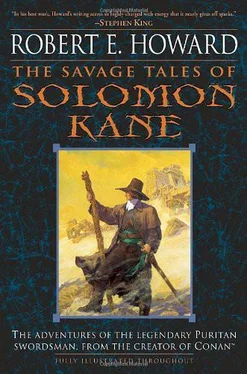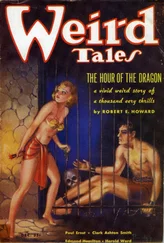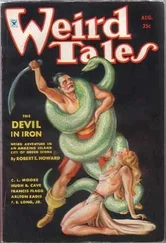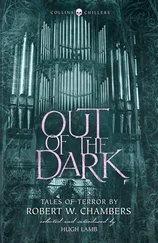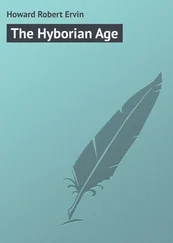In 1934, a new schoolteacher arrived in Cross Plains, who was to become a major force in Bob Howard's life. Bob had met Novalyne Price a little over a year previously, when introduced to her by their mutual friend Clyde Smith. Upon moving to Cross Plains, Novalyne made several attempts to call Bob, only to be told by his mother that he could not come to the phone, or was out of town. At last tiring of these excuses, she talked her cousin into giving her a ride to the Howard home, where she was greeted stand-offishly by his father but warmly by Bob. This was the beginning of a sometimes romantic, sometimes stormy relationship. For the first time, Bob had someone locally who shared his interests – and she was a woman! But his closeness to his mother, particularly his insistence upon attending to her in her illness, which Novalyne thought he should hire a nurse to do, rankled Novalyne, as did his refusal to attend social events. Marriage often entered their minds, and was even occasionally discussed – but the two never entertained the same feelings at the same time. When she would think she was in love, he would insist he needed his freedom. When he thought he was ready for love, she saw only the differences in their attitudes toward socializing. They were two headstrong, passionate, assertive personalities, which made for an interesting relationship, but one that was impossible to sustain. In the spring of 1936, Novalyne was accepted into the graduate program in education at Louisiana State, and left Cross Plains.
Through 1935 and 1936, Howard's mother's health was in rapid decline. More and more frequently Robert had to take her to sanitariums and hospitals, and even though Dr. Howard received a courtesy discount on services, the medical bills began to mount. Bob was faced with a dilemma: his need for money was more pressing than ever, but he had little time in which to write. Weird Tales owed him around $800, and payments were slow. Dr. Howard, his own meager savings exhausted, moved his practice to his home, so that patients came in and out all day and night. Father and son finally tried hiring women to nurse and keep house, further filling the house with people. Bob could find no time to be alone with his writing. This, and the despair he felt as his mother inexorably slid toward death, created enormous stress for the young writer. He resurrected an apparently long-standing plan not to outlive his mother.
This was no impulsive act. For years, he had told associates such as Clyde Smith that he would kill himself were it not that his mother needed him. Much of his poetry, most of it written during the 1920s and early 1930s, clearly and forcefully reflects his suicidal ideation. He was not at all enamored with life for its own sake, seeing it only as weary, gruelling toil at the behest of others, with scant chance of success and precious little freedom. A 1931 letter to Farnsworth Wright contains several statements of common Howard themes: “Like the average man, the tale of my life would merely be a dull narration of drab monotony and toil, a grinding struggle against poverty. . . . I'll say one thing about an oil boom; it will teach a kid that life's a pretty rotten thing about as quick as anything I can think of. . . . Life's not worth living if somebody thinks he's in authority over you. . . . I'm merely one of a huge army, all of whom are bucking the line one way or another for meat for their bellies. . . . Every now and then one of us finds the going too hard and blows his brains out, but it's all in the game, I reckon.”
His letters frequently express the feeling that he was a misfit in a cold and hostile world: “The older I grow the more I sense the senseless unfriendly attitude of the world at large.” In nearly all his fiction, the characters are misfits, outcasts, aliens in a world that is hostile to them. One wonders if the early childhood experience of being uprooted on a regular basis, as Dr. Howard gambled on one boom town after another – the Howards had at least eight different residences, scattered all over Texas, before Robert was nine years old – may have contributed to this feeling of being an outsider in an inhospitable land.
In some of his letters to Lovecraft he expressed another variation on this theme: the feeling that he was somehow born out of his proper time. He frequently bemoaned the fate that had him born too late to have participated in the taming of the frontier. “I only wish I had been born earlier – thirty years earlier, anyway. As it was I only caught the tag end of a robust era, when I was too young to realize its meaning. When I look down the vista of the years, with all the ‘improvements', ‘inventions' and ‘progress' that they hold, I am infinitely thankful that I am no younger. I could wish to be older, much older. Every man wants to live out his life's span. But I hardly think life in this age is worth the effort of living. I'd like to round out my youth; and perhaps the natural vitality and animal exuberance of youth will carry me to middle age. But good God, to think of living the full three score years and ten!”
Howard also seems to have had an abhorrence of the idea of growing old and infirm. A month before his death he'd written to August Derleth: “Death to the old is inevitable, and yet somehow I often feel that it is a greater tragedy than death to the young. When a man dies young he misses much suffering, but the old have only life as a possession and somehow to me the tearing of a pitiful remnant from weak fingers is more tragic than the looting of a life in its full rich prime. I don't want to live to be old. I want to die when my time comes, quickly and suddenly, in the full tide of my strength and health.”
For a young man, Howard seems to have had an exaggerated sense of growing old. When he was only 24 he wrote to Harold Preece, “I am haunted by the realization that my best days, mental and physical, lie behind me.” Novalyne Price recalls that during the time they were dating, in 1934–35, Bob often said that he was in his “sere and yellow leaf,” echoing a phrase from Macbeth: “I have lived long enough, my way of life | Is fal'n into the sere, the yellow leaf . . .”
Also in his May 1936 letter to Derleth, Howard mentioned that “I haven't written a weird story for nearly a year, though I've been contemplating one dealing with Coronado's expedition on the Staked Plains in 1541.” This suggests that “Nekht Semerkeht” may well have been the last story Howard started, and if so, it is of interest here, in that it dwells upon the idea of suicide. “The game is not worth the candle,” thinks the hero, de Guzman:
“‘Oh, of course we are guided solely by reason, even when reason tells us it is better to die than to live! It is not the intellect we boast that bids us live–and kill to live–but the blind unreasoning beast-instinct.'
“Hernando de Guzman did not try to deceive himself into believing there was some intellectual reason, then, why he should not give up the agonizing struggle and place the muzzle of his pistol to his head; quit an existence whose savor had long ago become less than its pain.”
And in the end, it may be that stress played an important role in his decision to take his own life. His mother's worsening illness had necessitated frequent absences from home, to take her to medical facilities in other parts of the state, and even when the Howards were home, Bob had little uninterrupted time, or peace, in which to write. He worried constantly about his mother. It may be that a complex array of forces coalesced to convince him of the futility of existence, and to impel him to take a long-contemplated course of action.
Howard planned for his death very carefully. He made arrangements with his agent, Otis Kline, for the handling of his stories in the event of his death. He carefully put together the manuscripts he had not yet submitted to Weird Tales or the Kline agency, with instructions on where they were to be sent. He borrowed a gun, a .380 Colt automatic, from a friend who was unaware of his plans. Dr. Howard may have hidden Bob's own guns, aware of what he might be contemplating. He said that he had seen his son make preparations on earlier occasions when it appeared Mrs. Howard might die. He said that he was trying to keep an eye on his son, but that he did not expect him to act before his mother died.
Читать дальше
